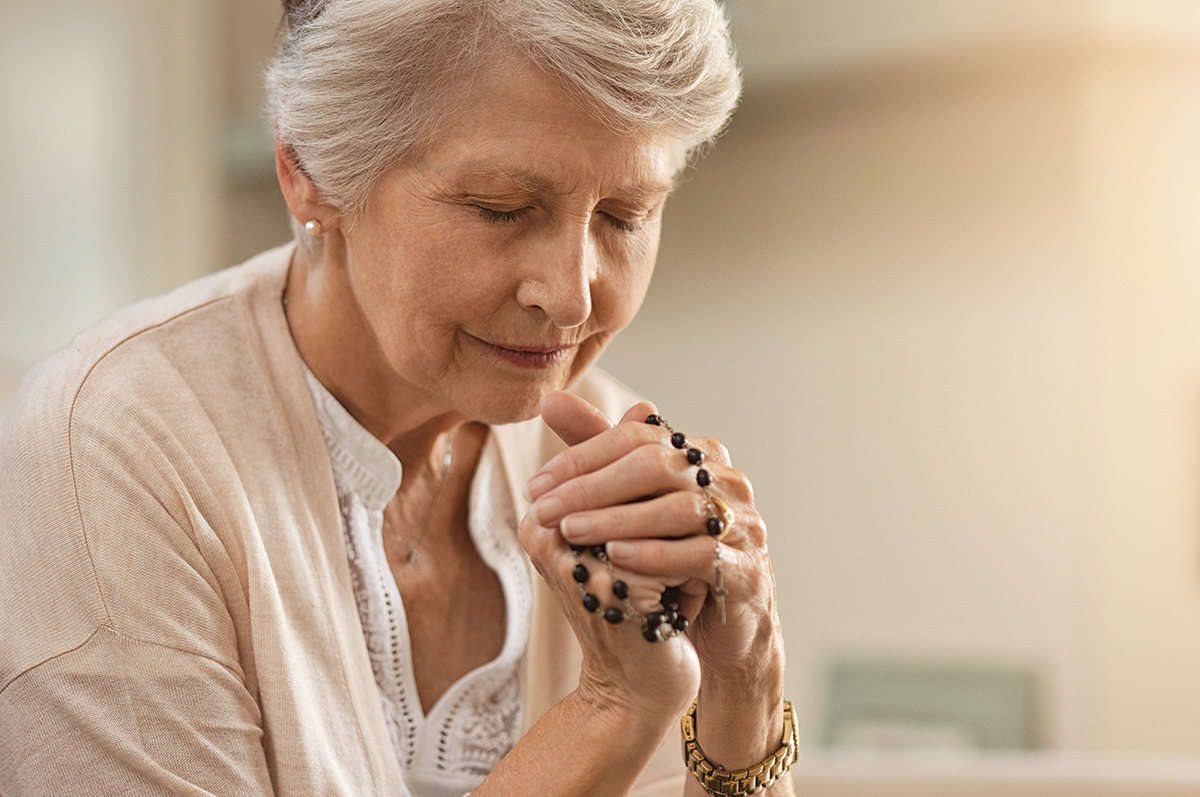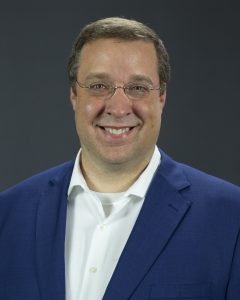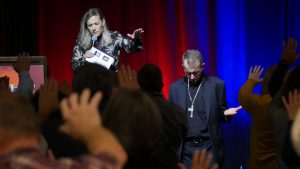
Senior woman praying while holding christian symbol of crucifix. Old woman praying to god with hope and closed eyes. Elderly believer make a prayer with faith holding rosary in hands.
Question:

I had a friend question why we pray to Mary and I wasn’t 100% sure how to answer it. What do you suggest?
Answer:
Thanks for this question. It’s a commonly asked one, by both Catholics and non-Catholics alike.
As simple as the question seems, it actually contains an entire series of questions. Let me explain that by walking through them.
A common objection to praying to Mary is that it takes away from Jesus’ status as our sole mediator between God and humanity.
My first response to this point is that we are told throughout the New Testament to both pray for others and to ask others to pray for us. Prayer that is specifically for others is called intercessory prayer, and it’s one of the most common ways that we pray. For instance, when we pray for health for friends, that’s intercessory prayer. Or when we ask our family to pray for a job interview, that’s intercessory prayer. This form of prayer isn’t merely “okay,” it’s highly praiseworthy. We should pray for others and we should ask others to pray for us. Such a practice is not only not in contradiction to Jesus’ mediation, but in fact is expected of us as His disciples and members of His Church.
I’d also make the point that when we ask people to pray for us, we tend to ask people who we know take their faith seriously. We intuitively recognize that not only will they pray, but there is a particular efficacy in their prayer because of their close relationship with God.
This essentially is what we’re doing when we pray to Mary. Prayer to Mary is simply asking her to pray for us, as we might ask a faithful friend to pray for us. Even more, it’s asking someone we recognize as the greatest of Jesus’ disciples to pray for us, as we would ask someone we recognize as a holy person on earth to pray for us.
If that’s the case, why do Protestant Christians question our prayer to Mary? There are usually a couple other reasons why they might object to this practice. First, the language we use can be a bit confusing. For most Protestants, prayer is something that is only ever directed to God. So “to pray” implies prayer of worship and adoration, which is due to God alone. And as Catholics we wholeheartedly agree that worship and adoration are due to God alone and no one else.
However, we use prayer in a different sense than that, to include requests to others—angels and saints, specifically—to pray for us. So any request for prayer that I make to a friend would be considered itself a prayer in our usage of the term.
Second and more substantially, Protestant Christians tend to question the validity of praying to those who have died. There can be a variety of reasons for this, but most commonly it relates to the biblical prohibition against conjuring the spirits of the dead, as is attempted in a seance, for example. Once again, as Catholics we completely accept this. So how can we accept praying to saints if we accept that it’s wrong to try to communicate with the dead?
It’s important to understand why using seances and mediums to contact the dead are prohibited. As the Catechism of the Catholic Church teaches, such practices are wrong because they are attempts to gain knowledge that God has not given to us (cf. CCC 2115-2116). But seeking Mary’s intercession is not that. Again, to pray to Mary or any of the angels or saints is simply to ask them to pray for us as we might ask someone on earth to pray for us.
Here it’s important to note that according to Scripture, death does not separate Christians in a definitive sense. There is one Body of Christ, one Church, and it includes both those on earth and those in heaven.
Finally, I’d note that praying to Mary is a practice that goes back to the earliest centuries of the Church. We have a papyrus dated to 250 A.D. that includes prayer to Mary. And throughout the early centuries of the Church we find saints and scholars alike extolling the practice.
 Be sure to check out the additional resources at sfcatholic.org/answer. If you have a question you need an answer to, email rkranz@sfcatholic.org.
Be sure to check out the additional resources at sfcatholic.org/answer. If you have a question you need an answer to, email rkranz@sfcatholic.org.
Chris Burgwald holds a doctorate in theology and is the director of Adult Discipleship and Evangelization for the Diocese of Sioux Falls.


